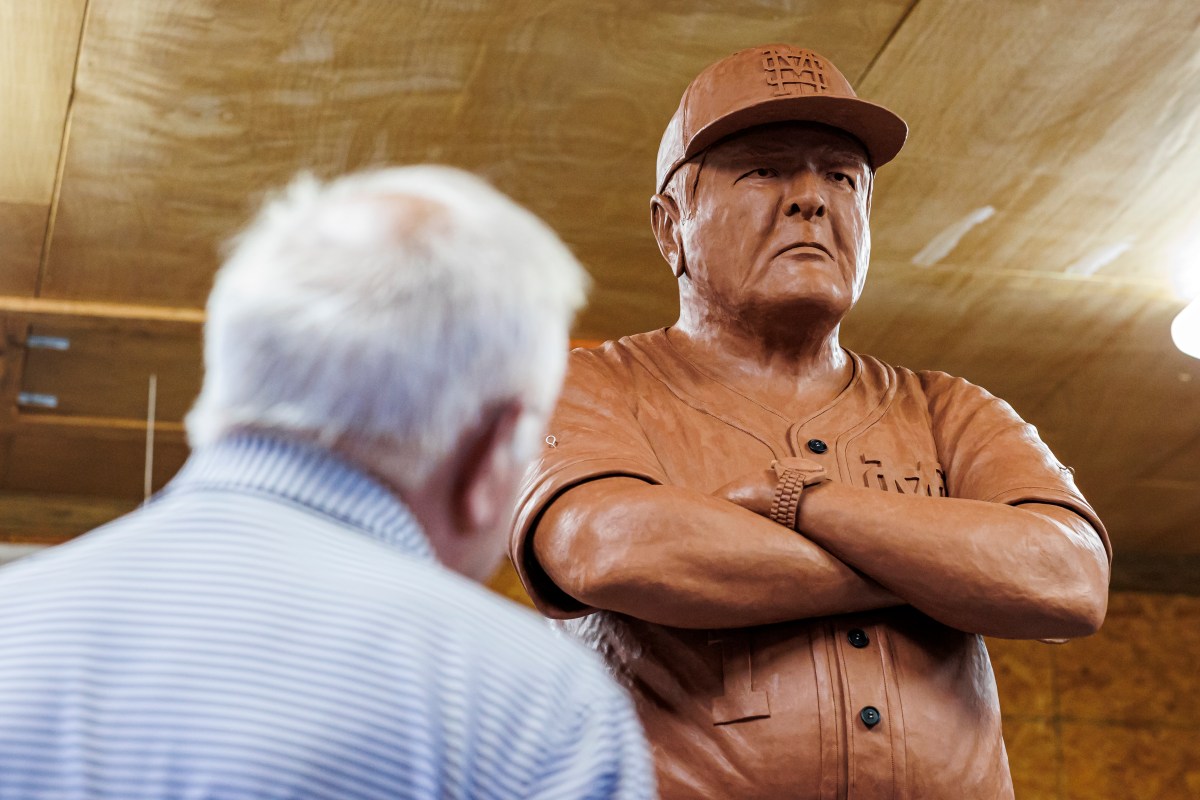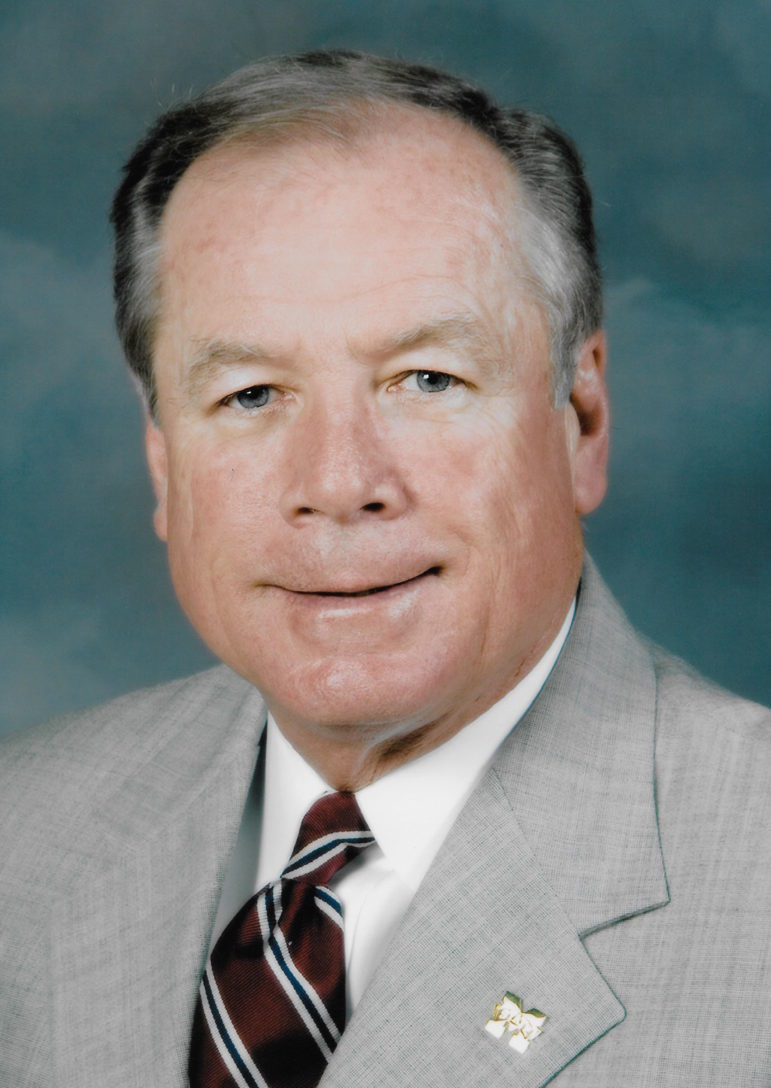Mississippi Today
All Ron Polk did in Mississippi was make college baseball matter

All Ron Polk did in Mississippi was make college baseball matter
This was back in December of 1975. Ron Polk, who was 31, had just been hired from Georgia Southern as the baseball coach at Mississippi State for a salary of $15,000 a year.
A month before, Clarion Ledger published news of Polk's hiring in a three paragraph story on page 4 of the sports section. A story previewing a Millsaps football game ran on the sports front, along with a story about football coach Bob Tyler's contract extension and a story about a Delta State women's basketball exhibition game. College baseball just wasn't front page news.
Back then, I was the sports editor of the Hattiesburg American and Polk had come to the Hub City to speak to a State alumni group. The late John Buckley, perhaps the most avid Bulldog fan ever, invited my dad and me over to his home to meet Polk.
Three things I remember most about first meeting Polk nearly 48 years ago: 1) he wore two-tone loafers, brown and white; 2) he had a cowlick in his close-cropped hair toward the back of his head; and 3) he was as confident-bordering-on-cocky as any man I had ever met.
Polk told us he was about to change college baseball in Mississippi forever. He said he was going to sell season tickets by the thousands, and it wouldn't be long before Dudy Noble Field was expanded. He said was going to hold clinics to educate Mississippi's high school baseball coaches, who at the time were mostly assistant football coaches. Mississippi baseball, he said, was about to get a lot better. He spoke about all that as if it were a matter of fact. At the time, it sounded like so much heresy.
Later, after we had left, I asked Dad what he thought. “Cockiest little banty rooster I've ever met,” Dad said.
I agreed. We both laughed and then agreed that if Polk were able to do all that, Mississippi State would need to build a statue in his honor. We laughed even harder.
Now, nearly half a century later, that bronze statue will be dedicated Friday afternoon prior to the first game of the Ole Miss-State weekend series at the entrance down the right field line at what is now Polk-Dement Stadium. All Polk said he would do, he did a long time ago. He has done a lot more.
This column will not be so much about Polk's 1,373 career victories, the six different Hall of Fame inductions, the eight different teams he took to the College World Series, the 10 different SEC Championships and how he really did change college baseball in Mississippi forever.
No, this hopefully will tell you more about man. We'll begin with perhaps my favorite Polk anecdote. This was the spring of 1998, the year after Polk had retired (for the first time) as State's baseball coach. Pat McMahon's Bulldogs were hosting an NCAA Regional and Polk was watching from the press box. Polk reached into his briefcase, took out a fat, 8-inch Honduran cigar and fired it up. Just over his head was a “No Smoking” sign, which I pointed out and told him, “I know you're old and retired but I didn't know you had forgotten how to read.”
Ron smiled, took a huge draw and exhaled a huge plume of smoke. He pointed to the centerfield wall where his name was prominent.
Said Polk, “Seems to me, you are the one who can't read.”
From the same year, same regional, same press box: Polk joined broadcaster Jim Ellis to do an inning or two of commentary. I dropped into the booth listen. State's fine shortstop Brad Freeman, now an NFL official, was at the plate when Polk said, “You know, Jim, Brad is so conscious of reaching that outside slider, he's really crowding the plate. If he gets a fastball inside, it's gonna hit him.”
Sure enough, the next pitch was a heater, in, and plunked Freeman flush on his left shoulder. Polk never missed a beat. “You know, Jim,” he said, “this radio commentating is pretty easy stuff.”
Polk retired, briefly, as State's baseball coach in 1995. He planned to take the job as director of the American Baseball Coaches Association (ABCA) and turned his resignation into the athletic director Larry Templeton, who subsequently offered the job to Pat McMahon. A couple days later, Polk had a change of heart and told Templeton he wanted to stay.
Templeton told Polk he already offered the job to former Polk assistant McMahon, then the head coach at Old Dominion. Templeton told Polk he'd see what he could do. So Templeton asked McMahon if he would consider assisting Polk as associate head coach for two years. McMahon, because of his immense respect for Polk, agreed to do just that.
Two years and another MSU trip to the College World Series later, McMahon took over.
Said Templeton, “I told Ron I needed him to help me raise the money to add skyboxes to Dudy Noble and he agreed.”
Polk spent the 1998 and '99 seasons out of a dugout for the first time in more than three decades, helping Templeton as a special assistant. Says Templeton, “I have never seen anyone as miserable as Ron was away from the game.”
And then Templeton's phone rang and the guy on the other end of the phone line was Georgia athletic director Vince Dooley. “I need a baseball coach,” Dooley said. “Got any suggestions?”
Templeton said he might know just the guy. He walked down the hallway and into Polk's office and told him about the Georgia situation. Long story short: Polk went to Athens, interviewed with Dooley and was offered the job. Polk took it.
Polk came back to Starkville and told Templeton he was the new Georgia baseball coach. Templeton congratulated him and asked him what Georgia was paying him. Polk told him and Templeton said, “That's not right.”
“So I called Vince and I told him that we paid Mississippi State assistant coaches better than what he was going to pay Polk to be the head coach,” Templeton said. “Vince explained that he had asked Ron what he wanted and that Ron told him, ‘Just pay me what the previous guy was making.'”
Templeton said Dooley asked him what he thought would be a fair salary, and Templeton told him.
“That's all it took,” Templeton said. “Ron got a $75,000 raise before he ever coached a practice.”
Polk, as always, earned his keep. Georgia was 25-30 the year before he got there. His first Georgia team won 32 games. The second won 47, the SEC championship and went to the 2001 College World Series.
Polk was still in Omaha with Georgia when the news broke that McMahon was leaving Mississippi State to take the Florida baseball job. This time, it was Templeton who called Dooley.
He told Dooley: “Vince, now I'm the one who needs a baseball coach, and I am calling you because it's time for Ron Polk to come home.”
That's exactly what happened. Polk came back to State and coached seven more seasons and went on to five NCAA Tournaments and one College World Series.
Says Templeton, “The whole time I was the athletic director I never had to worry about who was going to lock the doors of the athletic department at the end of the work day. Ron was always the last one to leave, often after midnight, and he always locked the door behind him.”
Again, when Polk was first hired at State (by Charley Shira at a State-LSU football game), the news ran on page four of the sports section of the state's largest newspaper. There was no press conference. There was no need for one. It simply wasn't big news. Contrast that with when Polk finally retired for good. The news was the lead story on the front page of the Clarion Ledger and there were several more stories in the sports section. The press conference was packed with reporters and TV cameras.
That might be the best measure Polk changed college baseball in this state. He made it matter. That's all he did. He made it matter.
This article first appeared on Mississippi Today and is republished here under a Creative Commons license.
Mississippi Today
Renada Stovall, chemist and entrepreneur
Renada Stovall sat on the back deck of her rural Arkansas home one evening, contemplating life when she had a life-altering epiphany…
“I gotta get out of these woods.”
She heard it as clear as lips to her ear and as deep as the trees surrounding her property. Stovall's job as a chemist had taken her all over the country. In addition to Arkansas, there were stints in Atlanta, Dallas and Reno. But she was missing home, her parents and friends. She also knew, she needed something else to do.
“I thought, what kind of business can I start for myself,” said Stovall, as she watered herbs growing in a garden behind her south Jackson home. Some of those herbs are used in her all-natural products. “I know when I lived in Reno, Nevada, where it's very hot and very dry, there really weren't products available that worked for me, my hair, and my skin suffered. I've got a chemistry degree from Spelman College. I took the plunge and decided to create products for myself.”

In 2018, Stovall's venture led to the creation of shea butter moisturizers and natural soaps. But she didn't stop there, and in December 2022, she moved home to Mississippi and got to work, expanding her product line to include body balms and butters, and shampoos infused with avocado and palm, mango butter, coconut and olive oils.
Nadabutter, which incorporates Renada's name, came to fruition.

Stovall sells her balms and moisturizers at what she calls, “pop-up markets,” across the state during the summer. She's available via social media and also creates products depending on what of her ingredients a customer chooses. “My turmeric and honey is really popular,” Stovall added.
“The all-natural ingredients I use are great for conditioning the skin and hair. All of my products make you feel soft and luscious. The shea butter I use comes from West Africa. It's my way of networking and supporting other women. And it's my wish that other women can be inspired to be self-sufficient in starting their own businesses.”





This article first appeared on Mississippi Today and is republished here under a Creative Commons license.
Mississippi Today
On this day in 1954
MAY 17, 1954

In Brown v. Board of Education and Bolling v. Sharpe, the U.S. Supreme Court unanimously ruled that the “separate but equal” doctrine in Plessy v. Ferguson was unconstitutional under the 14th Amendment, which guaranteed equal treatment under the law.
The historic decision brought an end to federal tolerance of racial segregation, ruling in the case of student Linda Brown, who was denied admission to her local elementary school in Topeka, Kansas, because of the color of her skin.
In Mississippi, segregationist leaders called the day “Black Monday” and took up the charge of the just-created white Citizens' Council to preserve racial segregation at all costs.
This article first appeared on Mississippi Today and is republished here under a Creative Commons license.
Mississippi Today
Every university but Delta State to increase tuition this year
Every university in Mississippi is increasing tuition in the fall except for Delta State University.
The new rates were approved by the governing board of the eight universities, the Institutions of Higher Learning Board of Trustees, at its regular meeting Thursday.
The average cost of tuition in Mississippi is now $8,833 a year, a roughly 3% increase from last year. Students can expect to pay tuition ranging from $7,942 a year at Mississippi Valley State University to $10,052 a year at Mississippi State University.
In recent years, universities have cited inflation and rising insurance costs as reasons for the tuition increases. At Thursday's meeting, the board heard a presentation on how property insurance is becoming more expensive for the eight universities as Mississippi sees more tornadoes and storms with severe wind and hail.
READ MORE: Tuition increases yet again at most public universities
But it's an ongoing trend. Mississippi's public universities have steadily increased tuition since 2000, putting the cost of college increasingly out of reach for the average Mississippi family. More than half of Mississippi college students graduated with an average of $29,714 in student debt in 2020, according to the Institution for College Access and Success.
At Delta State University, the president, Daniel Ennis, announced that he will attempt to avoid tuition increases as the regional college in the Mississippi Delta undergoes drastic budget cuts in an effort to become more financially sustainable.
“We will resist tuition increases so that our most economically vulnerable students can continue to have access to the opportunities that a college degree can provide,” he wrote in a memo to faculty and staff on Monday. “We will move beyond basic survival and into a place where we have the capacity to take better advantage of our undeniable strengths.”
Delta State didn't increase tuition last year, either. Officials have been concerned the university is becoming too pricey for the students it serves.
Tuition for the 2024-25 academic year, by school:
- Alcorn State University: $8,105
- Delta State University: $8,435
- Jackson State University: $8,690
- Mississippi State University: $10,052
- Mississippi University for Women: $8,392
- Mississippi Valley State University: $7,492
- University of Mississippi: $9,612
- University of Southern Mississippi: $9,888
This article first appeared on Mississippi Today and is republished here under a Creative Commons license.
-
SuperTalk FM5 days ago
Martin Lawrence making 3 stops in Mississippi on comedy tour
-
Our Mississippi Home4 days ago
Beat the Heat with Mississippi’s Best Waterparks
-
Our Mississippi Home5 days ago
Charlie’s U-Pik: Opening Soon for the Summer Season
-
Mississippi News Video7 days ago
Local dentists offer free dental care in Amory
-
SuperTalk FM19 hours ago
State auditor cracking down on Mississippians receiving unemployment benefits
-
Mississippi News Video3 days ago
Jackson has a gang problem
-
Kaiser Health News4 days ago
Medicaid ‘Unwinding’ Decried as Biased Against Disabled People
-
Mississippi Today7 days ago
On this day in 1968










































